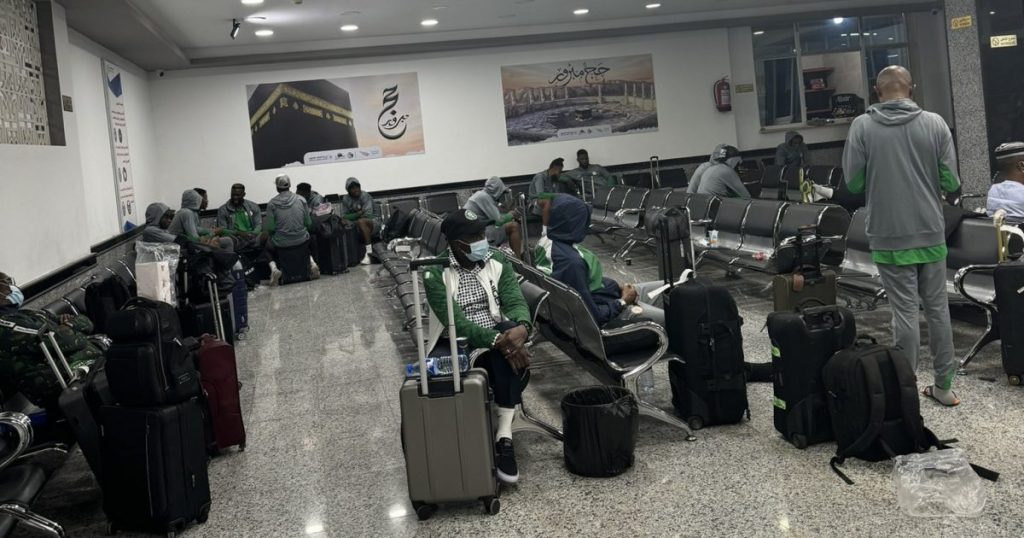The Super Eagles of Nigeria recently faced an unfortunate situation when they were stranded at Abraq International Airport in Libya, just two days before a crucial Africa Cup of Nations qualifier against the Mediterranean Knights. The team had initially departed from Uyo on Sunday morning with hopes of reaching Benghazi, where the match is scheduled to take place at the Benina Stadium. However, their travel plans were disrupted due to an unexpected diversion of their chartered flight, leading to logistical challenges and potential impacts on their pre-match preparations.
The issues began mid-flight when the Nigeria Football Federation (NFF) had secured prior approval for the team’s aircraft to land in Benghazi. In a surprising turn of events, the aircraft was redirected to Abraq International Airport, which is situated significantly farther away from their intended destination. Sports journalist Tobi Adepoju highlighted that the diversion was not only unwelcome but also unanticipated, given the previous arrangements made for the team’s arrival in Benghazi. Such sudden changes in travel plans raised concerns regarding the team’s ability to be adequately prepared for the upcoming match.
Compounding the problems faced by the Super Eagles, the Libyan Football Association failed to provide necessary transportation at Abraq Airport. While the NFF had made arrangements for buses in Benghazi, there were no vehicles available to transport the team from the airport to the stadium. This lack of logistical support left the Nigerian delegation stranded, with a lockdown component further complicating their situation. Security measures at the airport prevented the team from exiting, heightening tensions as they faced an increasingly uncertain arrival timeline.
The stranded situation gained considerable attention on social media, with footage of the team sitting in the waiting hall circulating widely. Viral videos, including one from NFF TV showcasing Nigerian officials speaking with airport authorities, painted a vivid picture of the team’s plight. The public’s reaction highlighted growing concern for the Super Eagles’ readiness and morale ahead of an important qualifier. The incident not only drew attention to the practical hurdles the team faced but also to the broader issues of coordination and support in international sporting events.
In the context of the Africa Cup of Nations qualifiers, the Super Eagles are performing well, currently leading Group D with seven points after a win against Libya in their previous encounter. The team’s record showcases their competence and potential. However, the logistical hiccup introduced by the flight diversion and lack of transportation has raised questions about administrative planning on both sides. It emphasizes the critical nature of efficient coordination between national football associations when hosting international teams.
As the matches approach, the Nigerian team’s hope remains that they will resolve the stranded situation quickly, allowing them to arrive in Benghazi with ample time to prepare. The Super Eagles’ focus must now shift from travel turmoil back to the pitch, where they aim to solidify their position in the qualifying rounds of the Africa Cup of Nations. While the current situation is regrettable, there is a shared anticipation among fans that the team’s resolve will shine through, signifying not only a test of their athletic capability but also their ability to overcome unforeseen challenges in the realm of international football.


